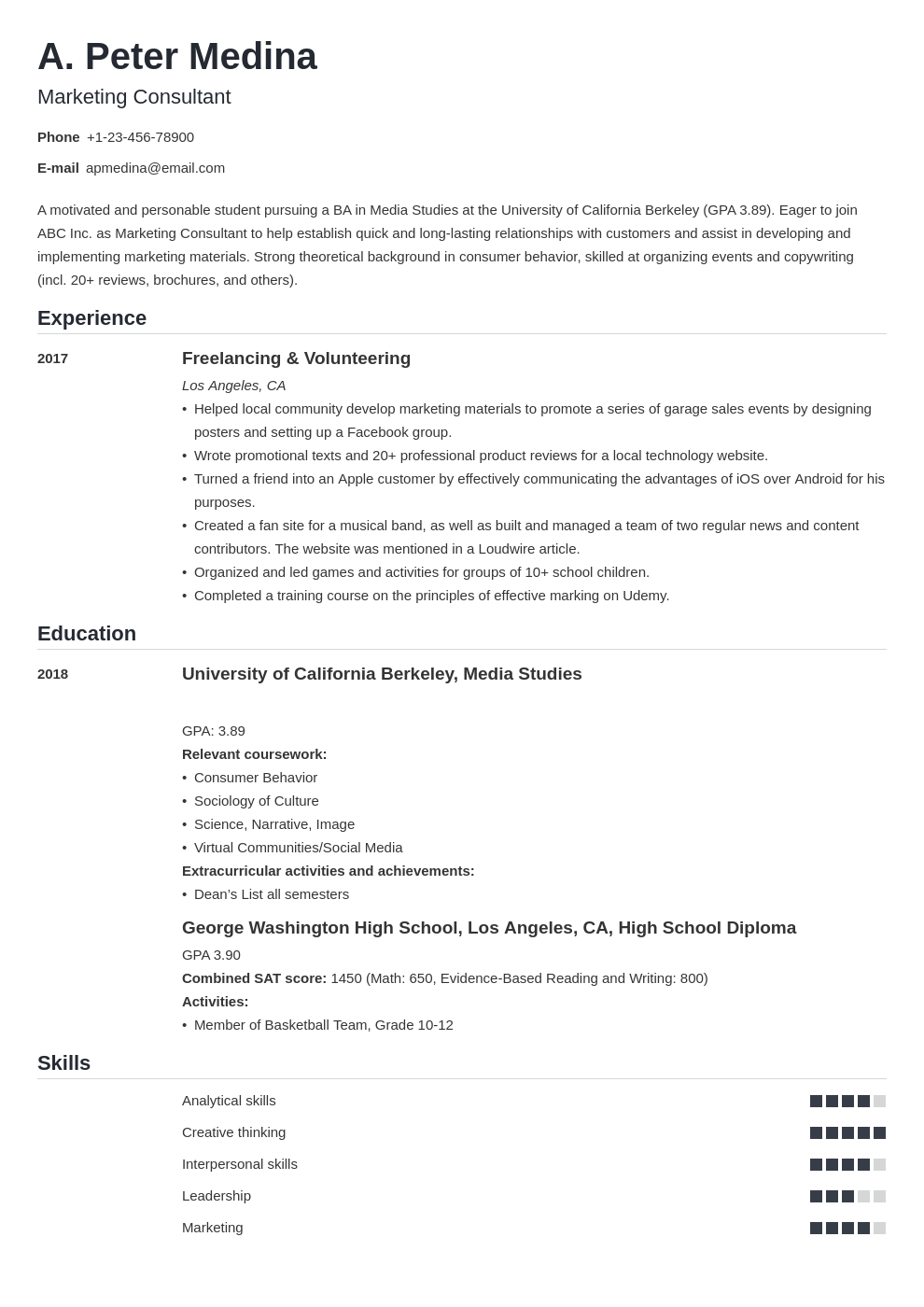Stepping into the job market can feel daunting, especially when every job posting seems to demand years of experience you simply don’t have yet. It’s a classic chicken-and-egg situation: how do you get experience without a job, and how do you get a job without experience? Many people find themselves in this exact position, fresh out of education or looking for a career change, and it’s perfectly normal to feel a bit stuck when it comes to creating your first professional document.
But here’s the good news: having no formal work history doesn’t mean you have nothing to offer. In fact, you likely have a wealth of skills and experiences that, with the right approach, can be presented powerfully on paper. The key is knowing how to translate your unique background into something employers will find valuable. This article will guide you through crafting a compelling cv no work experience template that highlights your potential and opens doors to exciting opportunities.
Highlighting Your Strengths Beyond Traditional Employment
When you think about “work experience,” your mind might immediately jump to paid, full-time jobs. However, the scope of what constitutes valuable experience is much broader than that. Employers are increasingly looking for transferable skills and demonstrated abilities, regardless of whether they were gained in a corporate office or a volunteer setting. This means every group project from university, every leadership role in a school club, every successful fundraising event you organized, or even a personal hobby you’ve dedicated yourself to, holds potential.
Consider for a moment all the times you’ve had to work with others, meet a deadline, solve a problem, or learn a new skill. These are all experiences that have equipped you with valuable assets. Perhaps you were a diligent student who consistently met academic goals, or a creative individual who managed a personal blog, or a dedicated volunteer for a local charity. Each of these scenarios provides concrete examples of your capabilities and work ethic, which are exactly what employers want to see.
Identifying Key Skills to Showcase
The trick is to identify the specific skills you’ve developed and then articulate them in a way that resonates with potential employers. Think about what a job description asks for, and then reflect on how your non-traditional experiences align with those requirements. Were you responsible for managing social media for a club? That shows communication, marketing, and organizational skills. Did you lead a study group? That’s leadership and teamwork.

Even seemingly unrelated activities can be reframed. A passion for gaming might highlight strategic thinking and problem-solving. Running a household budget demonstrates financial literacy and organization. The goal is to connect the dots between your past activities and the demands of the job you’re applying for.
Here are some common areas where you might have gained valuable experience:
* Volunteering: Demonstrates initiative, empathy, teamwork, and commitment.
* Academic Projects: Showcases research, analytical thinking, presentation skills, and attention to detail.
* Extracurricular Activities: Highlights leadership, collaboration, time management, and event planning.
* Personal Projects/Hobbies: Can reveal creativity, problem-solving, dedication, and self-discipline.
* Internships or Work Placements (even if unpaid): Provides direct industry exposure and practical skill development.
Structuring Your CV for Maximum Impact
Once you’ve identified your strengths, the next step is to present them effectively in your CV. A traditional chronological format, which emphasizes work history, won’t serve you best here. Instead, you’ll want to lean into a functional or skills-based approach that puts your capabilities and achievements front and center. This allows you to immediately capture the recruiter’s attention with what you can do, rather than what you haven’t done professionally.
Your cv no work experience template should typically begin with your contact information, followed by a strong personal statement or objective. This opening paragraph is crucial; it’s your elevator pitch, where you succinctly introduce yourself, your career aspirations, and your most relevant skills. Tailor this statement for each application, using keywords from the job description to show that you understand what they are looking for.
Next, prioritize your education, detailing your qualifications, relevant coursework, and any academic honors or significant projects. This section is where you demonstrate your foundational knowledge and dedication to learning. Following education, a dedicated “Skills” section is vital. Here, you can list both hard skills (like software proficiency, languages, or data analysis) and soft skills (like communication, problem-solving, adaptability, and teamwork).
Consider including sections like “Projects,” “Volunteer Experience,” or “Extracurricular Activities.” For each entry, don’t just state what you did; explain the impact of your actions using action verbs and, where possible, quantifiable results. Instead of “helped organize events,” try “Coordinated and promoted five community events, resulting in a 20% increase in attendance.” This level of detail paints a clearer picture of your contributions and potential.
To summarize, here’s a suggested structure:
* Contact Information: Clear and professional details.
* Personal Statement/Objective: A powerful opening that highlights aspirations and key skills.
* Education: Detail courses, achievements, and relevant coursework.
* Skills Section: A dedicated section for both hard and soft skills.
* Projects/Portfolio: Showcase personal initiatives or academic assignments.
* Volunteer Work/Extracurriculars: Explain roles, responsibilities, and achievements.
Crafting a CV when you’re short on formal experience is absolutely achievable with the right mindset and strategic presentation. Focus on what you *have* done and the valuable skills you’ve gained, rather than dwelling on what you haven’t. Every experience, no matter how small, has contributed to who you are and what you can bring to a team.
By thoughtfully detailing your academic achievements, volunteer roles, personal projects, and extracurricular activities, you can build a compelling case for why you are the ideal candidate. Your enthusiasm, willingness to learn, and transferable skills are powerful assets that employers are eager to discover. Take pride in your unique journey and present it with confidence; your first opportunity awaits.
